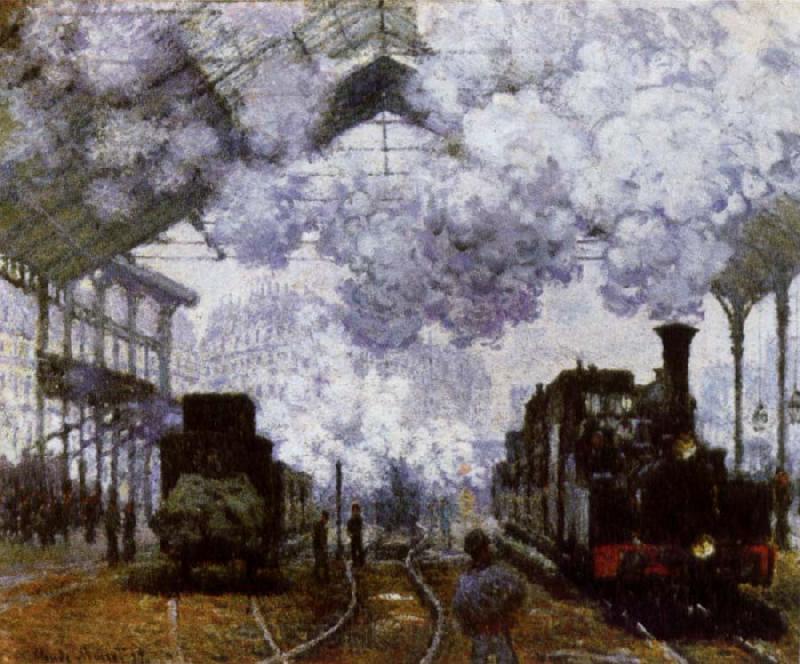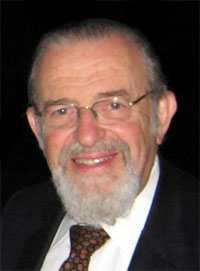 |
| Claude Monet: Gare Saint Lazare, 1877 |
The years turn and turn, slowly at first, like the wheels of a train as they roll from the station. Bit by bit, momentum gathers. In the window, scenery starts to flicker and flit. We catch glimpses of a gray mountain capped with snow, a shanty red barn long abandoned. The train hurtles by a lake so still that it casts an unearthly reflection of the heavens, and then it, too, is gone. Suddenly, the train lurches. It pulls up to a platform. We disembark. Behind the train, twin tracks of silver vanish in the distance. We’ve traveled far and traveled quickly. “It went by so fast,” we say.
But the tracks point the way back. We know the train’s path. We can retrace our steps and measure gain and loss, joy and ache. To search the past, though hard on the soul, is easy on the eyes. Hindsight is 20/20, we say. But what of the future? What of looking upon the tracks ahead — instead of those behind — and studying them like a travel guide before a journey? When we know what lies ahead, are there parts of life we savor more? Are there traps and pitfalls we might circumvent?
This week’s Torah portion, Toldot, begins with a prophecy. Rebecca, after 20 years of unrequited prayer, is finally with child — twins in fact: Esau and Jacob. But the pregnancy is unbearable. “The children struggle together within her.” Fearing she may lose the pregnancy, she cries out: “If it be so, wherefore do I live?” (Genesis 25:22; Malbim’s Commentary).
The Lord responds to her outcry: “In your womb are two nations; two peoples shall your bowels disperse. One people shall be stronger than the other people; and the elder shall serve the younger” (Genesis 25:23). Although her fear of miscarriage is allayed, another anxiety dams her heart: How does one raise two siblings who already contend in the womb and whose own children will contend long after they die?
It comes as no surprise that Esau and Jacob are nothing alike. Esau is a wild bear of a man, “a cunning hunter in the fields.” Jacob is an “innocent” who prefers to “dwell among the homely tents.” Yet, what does surprise us is how Rebecca and Isaac raise their sons. Instead of trying to bridge their differences, they widen the chasm and add bitter spices to the boiling stew of strife. “Now Isaac loved Esau, because he ate of his venison; but Rebecca loved Jacob” (Genesis 25:28).
Rabbi Hezekiah ben Manoah, the medieval French commentator, points out that Isaac’s love was inconstant and conditional; he would express his approval of Esau in return for a helping of freshly hunted meat. In contrast, Rebecca’s love for Jacob was constant and unconditional, flowing to Jacob without preemption (Hizkuni on Genesis 25:28).
Atop favoritism and asymmetric love, there is the added sorrow for what each boy lacks. Jacob grows up longing for his father’s approval. Esau, on the other hand, is deprived the wholehearted love of his mother. Jealousies abound. Each train, it seems, has left the station, and the tracks are surely crossed.
Rabbi J.H. Hertz, the late U.K. chief rabbi, suggests that had Isaac and Rebecca raised their sons differently, spreading their love out more evenly, the whole saga of stolen birthrights and blessings may have been averted (Soncino, Genesis 25:28). But before we judge, we ought to ask ourselves if we are any better. When we think on the future, near and distant, can we, with a little effort, anticipate the mistakes we will undoubtedly make? Knowing our likes and dislikes, fears and faults, can we predict the pitfalls that will trip us up? And yet, though we know where the train tracks surely lead, how many of us still board the train, crowding the carriage with our lapses in judgment?
Sometimes, though, we are afforded a second chance. The heart senses the wrongness of the way; the eyes search ahead and see what difficulties await. There is hope. Train wheels turn slowly at first; perhaps there is time to step back onto the platform.
Rabbi Yehuda Hausman is a Modern Orthodox rabbi who teaches in Los Angeles. He writes about the weekly parasha on his blog, rabbihausman.com












